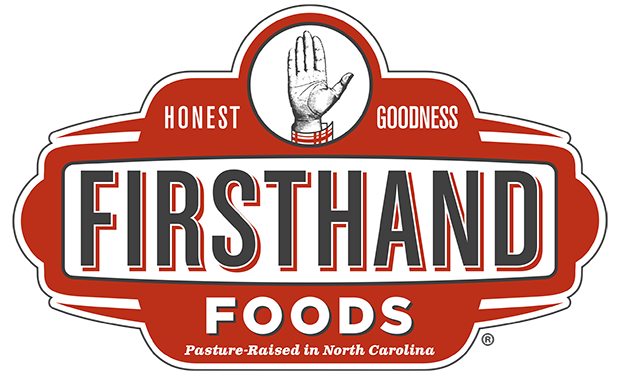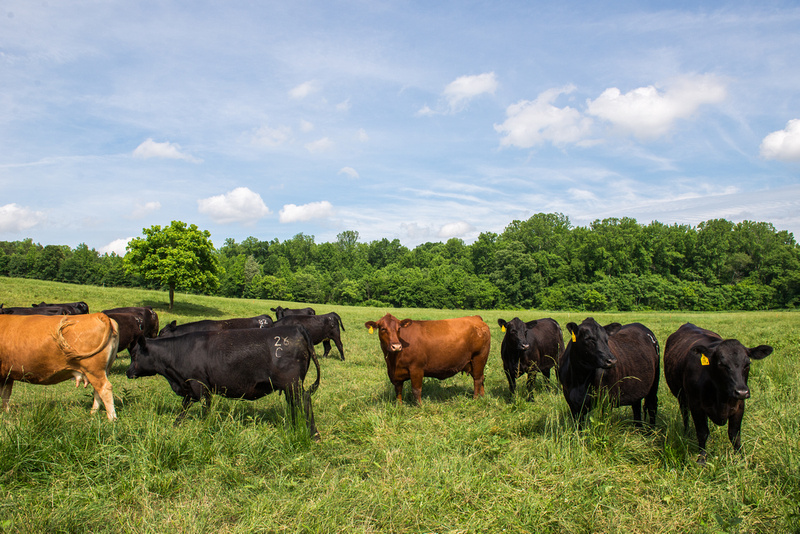Sometimes when I am driving down the road and see a vast expanse of green grass, I think, “That field really needs a grazing animal or two.” It might seem strange coming from an environmentalist and former vegetarian, but the thought occurs to me often. Working with livestock producers for the past 20 years has taught me to reevaluate some of my opinions about animal agriculture and has given me hope that we can produce food in a way that is regenerative rather than extractive. It has given me hope that we don’t need to choose between nourishing ourselves and taking care of the planet.
At Firsthand Foods, we use the term “pasture-raised,” all the time (see our producer protocols and standards). Legally, it has no meaning. Unlike a regulated claim like “organic,” pasture-raised is up for interpretation. So what does it mean to us? Pasture-raised refers to a way of producing delicious food that enables our farmers to be good stewards of the land while their livestock live naturally and humanely.
At the heart of pasture-raised production systems is a symbiotic relationship between animals and the land that if well-managed has the potential to be self-sustaining. Grazing ruminant animals – think beef, goats, and sheep — convert sunshine and water (in the form of grasses and forages) into proteins for human consumption. As they graze, their waste products provide nutrients for pasture growth and renewal. Deep root growth improves soil stability and water retention in a positive feedback loop that promotes soil microbes and forage quality, increases organic matter and earthworm populations, sequesters carbon and strengthens resilience in times of drought.
The key to making this natural cycle work is carefully managed animal movement or “intensive rotational grazing.” Whereas livestock kept in close quarters for too long results in overgrazing, nutrient concentration and pollution, rotational grazing strategies can eliminate these problems. And NC State University’s Amazing Grazing Program is demonstrating that intensive rotational grazing has economic benefits for farmers, including improving yields and forage quality and reducing labor and fuel expenses.
This is not to say that pasture-raised production systems are perfect. There is still much to learn and improve upon when it comes to sustainably managing animals outdoors. This is especially true for omnivores, including hogs, which do not spend much time grazing and can easily denude the landscape. But the principle of carefully managing animal movement still holds true for our Animal Welfare Approved hog farmers as they plant annual crops for hogs to forage in and creatively use of woodlots and wallows.
At Firsthand Foods, we notice that meat from animals carefully managed on pasture results in great taste and quality. Full of heart healthy fats and flavor, the eating experience is made exceptional. While our customers no doubt add the finishing touches in terms of preparation, the real essence of the meal begins on the farm. It begins with the commitment our producers make to stewardship and their creative management of four simple ingredients – animals, plants, sunshine, and water.
So when we make the claim that our meat is “pasture-raised,” we’re communicating our company’s commitment to stewardship, to providing high quality meats, and to helping build sustainable agricultural systems that don’t just taste good in the short term but nourish us for the long term.

